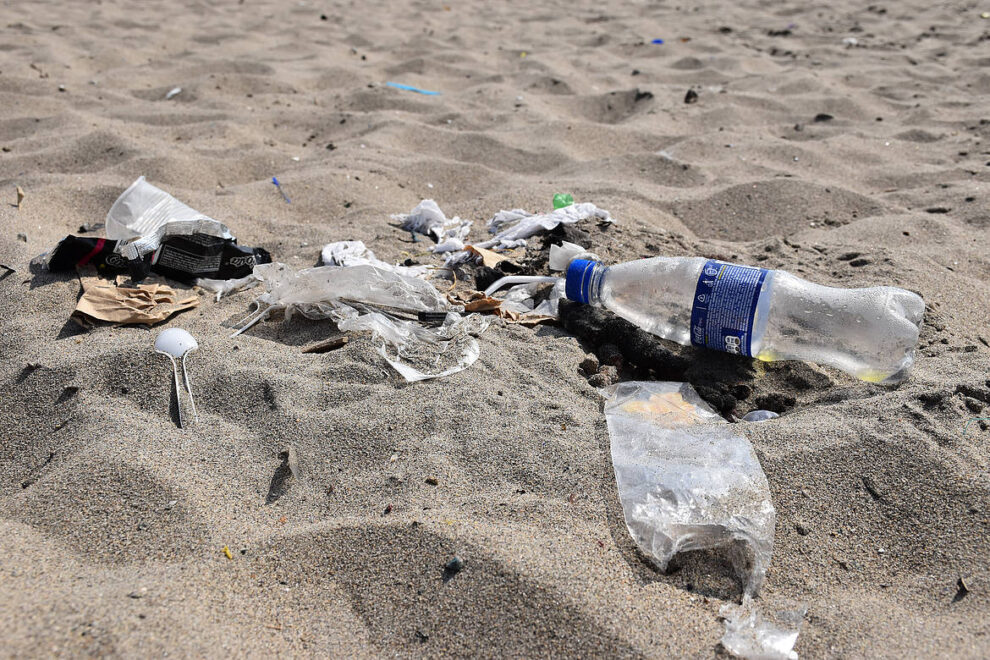Every day on average, more than 18 thousand tons of waste are generated in Peru.
In Peru, more than seven and a half million tons of solid waste are generated each year, of which 64% comes from households, according to data from the Ministry of Environment (2015). Over time this rate has increased exponentially. Moreover, if the forecasts of the World Bank are fulfilled, it is estimated that by 2025 up to 36,000 tons of garbage will be generated per day, thus making it necessary to propose immediate solutions such as recycling.
Cities represent a major challenge for solid waste management. In Lima, the largest city in the country where almost 10 million people live, about 8,468 tons of garbage are generated daily, which corresponds to 47% of the total produced. Whereof, only 4% is recycled. In fact, Lima is the city with the highest ecological footprint, exceeding ecologically permissible parameters. According to the Ministry of Environment, if all human beings maintain the current habits of an average citizen of Lima, we would need 1.27 planets to survive.
Besides being a solution for waste management, recycling is one of the pillars of the circular economy scheme that seeks to squeeze all human creativity to move from the current model of buying, using and discarding to finding a second use to thousands of residues. In this effort to reuse resources, it is essential that citizens participate in generating less waste.
“The idea is to reduce our consumption, whenever possible, but recycling is also the first step towards a more sustainable planet.” Without a doubt it is necessary that at a local level solid resources are managed in a sustainable manner so that, in the future, garbage becomes an input with value for the economy. Yet, it is also crucial that citizens reduce their level of garbage production and recycle. Simple actions can contribute decisively to the planet” says Kjeld Nielsen, Director of Communications and Marketing of WWF Peru.
Key Factors for a Successful Recycling
Plastic waste is reaching alarming levels. 1 out of every 10 kilos of trash generated by Peruvians is plastic. According to the Ministry of Environment, 46% of the waste on Peruvian beaches is from this harmful material that can take up to 400 years to biodegrade. Going to the supermarket with reusable bags, avoiding buying products unnecessarily wrapped in plastics (for example, fruits on styrofoam trays) and renouncing the use of disposable plastic straws is a great step to reduce the consumption of this material. Another option is to find a new function in your home for the plastics you have bought, for example, using a bottle of water as a flowerpot.
Batteries are another major pollutant. A single button cell can contaminate up to 600,000 liters of water, because mercury represents 30% of its weight. Therefore, they should not be discarded with organic waste, but deposit them in special containers such as those authorized in some supermarkets.
Recycling paper is another of the key actions to reduce our footprint. Each ton of recycled paper prevents the logging of a dozen trees and saves energy. Taking advantage of the sheets on both sides or creating notebooks with the remaining sheets of paper are simple actions with a great impact. Another option is to buy certified paper with the seal of the Forest Stewardship Council (FSC), an independent organization created with the aim of promoting environmentally responsible forest management. When the paper and cardboard are no longer used, you should go to the recycling points where there are special containers for these materials and others, such as glass.
It is common to see a person pouring oil through the drain; however, this action is highly polluting. Some estimates consider that pouring a liter of used oil contaminates 1,000 liters of drinking water. The used oil can be stored in a bottle and delivered to one of the nearest collection points. The website dondereciclo.org mentions some recycling points in the city.
Source: WWF











